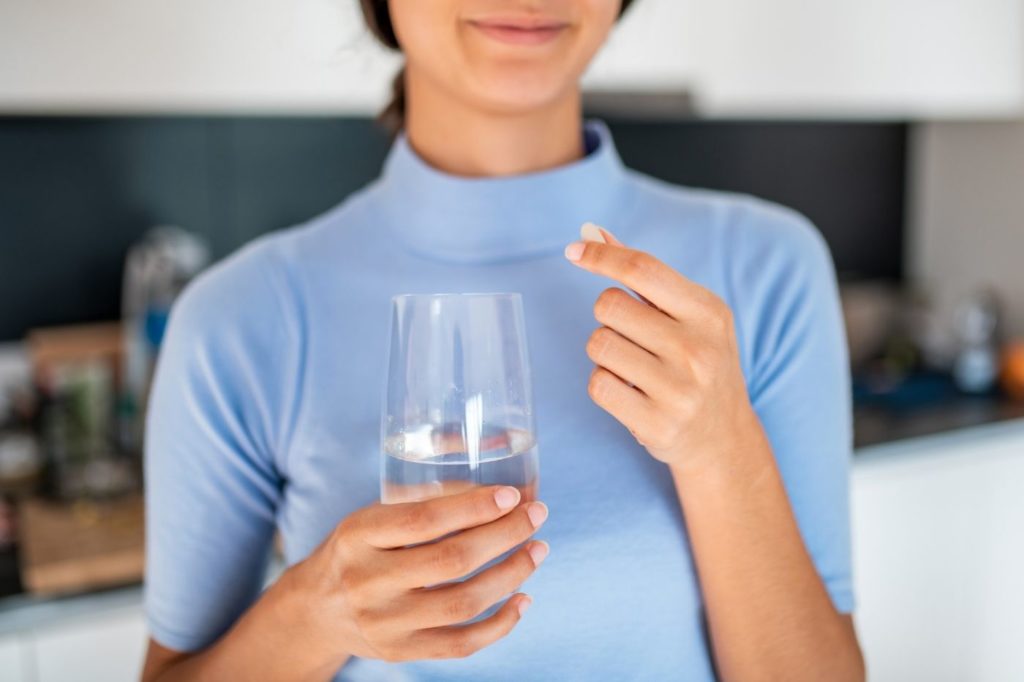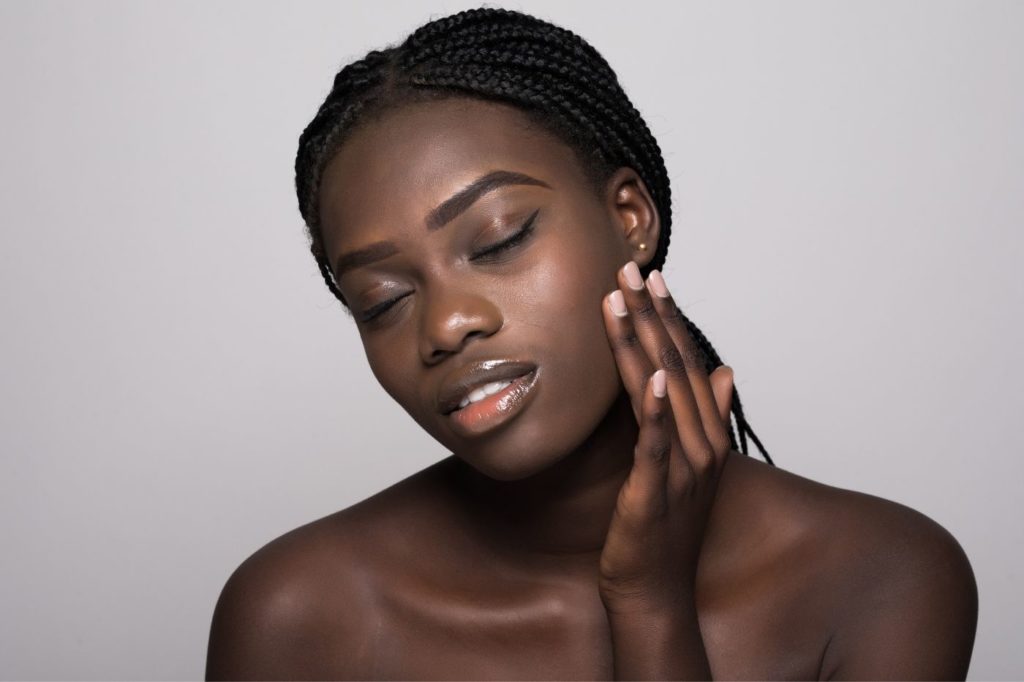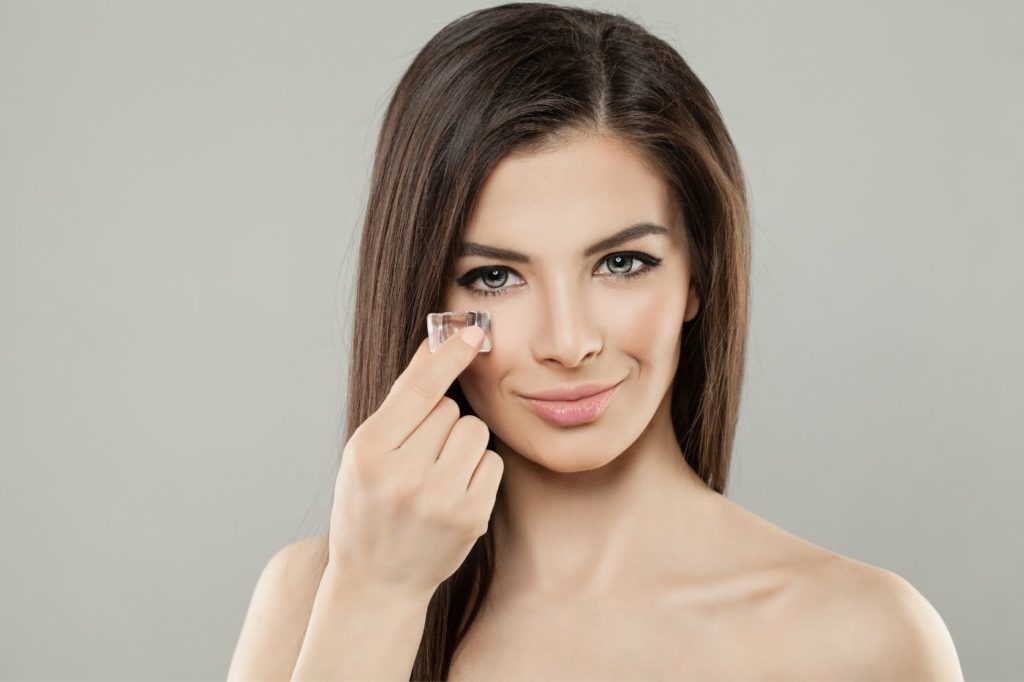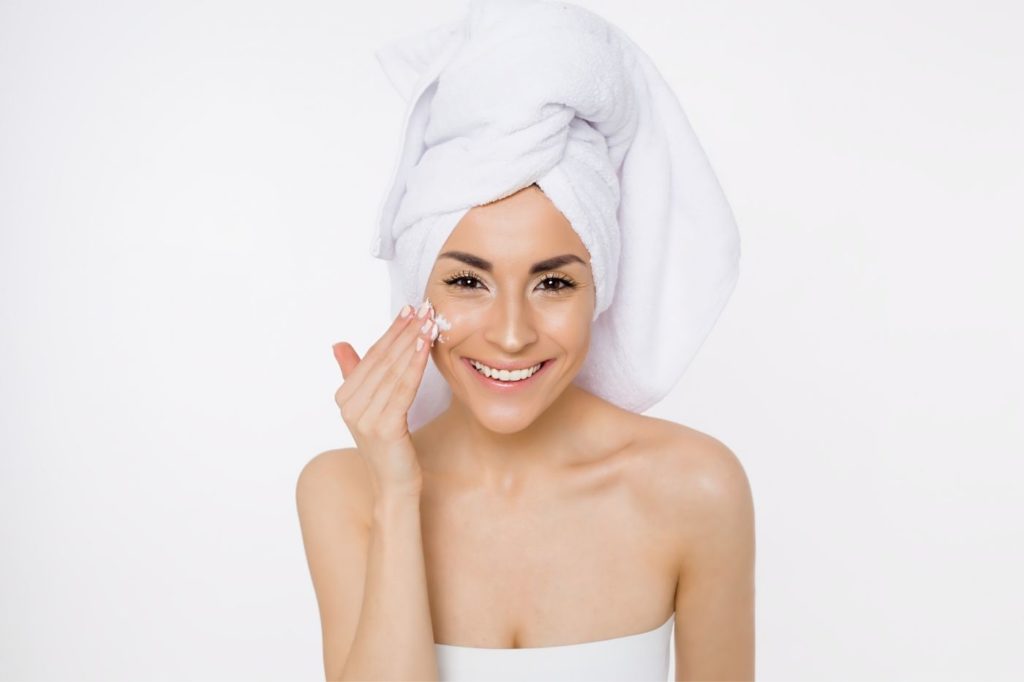Acne vulgaris may seem like a never-ending battle against nature. Whether it’s hormonal acne, cystic acne, seasonal, stress-induced, or just plain genetics, some of us spend years fighting pimples. If you’re battling breakouts, you may want to consider zinc for acne.
Zinc has been used in the treatment of acne for centuries. Let’s take a look at why this mineral is so popular. We’ll unpack whether it works, the types of zinc treatments available, and dosages.
What Exactly Is Zinc?
Zinc is an essential mineral, which in this usage means that your body doesn’t produce it. We need it for cell production, immune function, and enzyme reactions and synthesis.
As a necessary component in collagen synthesis, zinc is involved in our skin’s health and appearance. Zinc is also a natural antimicrobial, fighting bacteria and viruses.
Does Zinc Work for Acne?
Before jumping into how zinc might help, let’s recap our acne basics. Acne is a common skin condition wherein hair follicles or pores are clogged with sebum, dead skin, makeup, dirt, sweat, or other substances.
This blockage leads to an immune response of swelling, redness, and any of the following symptoms of acne:
- Blackheads: deeply blocked pores, open to the surface of the skin
- Whiteheads: like blackheads, these are deeply blocked pores. The key difference is with whiteheads, new skin has formed over the surface of the blocked pore.
- Papules: small red bumps, usually painful to touch
- Pustules: small red bumps with pus near the surface. You should not try to squeeze or pop these, as this could cause scarring.
- Nodules: larger bumps under the surface of the skin, painful to touch and difficult to eliminate
- Cysts: larger, sac-like pocket under the surface of the skin, painful to touch and will not go away on their own
Does zinc work for acne? Yes, zinc supplementation works for acne in many cases.
Zinc has natural anti-inflammatory properties, and these can help reduce the redness and swelling associated with breakouts. As a powerful antibacterial, zinc can also help fight the bacteria that builds up when pores become clogged, preventing them from becoming infected.
Zinc has been used to treat not only acne, but for skin conditions like:
- Eczema
- Rosacea
- Seborrheic dermatitis
- Warts
- Signs of aging
Clearly, zinc can be a potent remedy for many different skin conditions.
How To Use Zinc for Acne
To beef up your immune response to acne and avoid zinc deficiency, you might want to consider increasing your zinc intake. This can be done through diet or supplementation, as well as some topical treatments.
Topical Supplements
Topical zinc treatments are the most gentle and, if your acne is on the less severe side, might be the easiest to build into your routine. Some over the counter topical zinc options are:
- Zinc sulfate
- Zinc acetate
- Zinc octoate
Other skincare products include zinc, such as sunscreens and moisturizers. Zinc is a powerful agent in blocking UV rays.
Before applying anything directly to your face, it is recommended that you test a less sensitive area first, using the following steps:
- Find a small area of skin similar to the affected area, such as the underside of your arm.
- Apply a small amount of the product to that area and wait 24 hours.
- Within that 24 hours, you’ll watch for itching, redness, peeling, or any adverse skin condition. If you experience any of these, do not proceed.
- If your test area looks ok, carry on!
Remember, it’s always a good idea to chat with your dermatologist before starting a new supplement or topical acne medication.
Dietary Changes
We know that our diets affect our skin health, influencing factors like the skin’s microbiome, inflammation, and oil production. Here’s how you can add to your zinc levels by changing your diet.
The foods highest in zinc are:
- Oysters and other shellfish
- Beef
- Poultry
- Dairy products
- Pumpkin seeds
- Nuts
- Fortified cereals
While there are other plant-based sources for zinc, many whole grains and legumes also contain phytates, which bind zinc and decrease bioavailability. For more information on using diet change for acne treatment, click here.
Oral Supplements
Temporary use of dietary supplements seems to be the most effective method of treating moderate acne with zinc. There are several forms of over-the-counter zinc supplements, either combined with other minerals or in multivitamins.
Here are some common oral zinc compounds:
-
Zinc gluconate
- Zinc acetate
- Zinc sulfate
- Zinc oxide
Zinc is often combined with acids to aid in its absorption and breakdown in the body. Some of these compounds will be gentler, while some can lead to severe side effects. You should talk to your doctor about which ones will work best for you.
Which form of zinc is best for acne? No one form of zinc is best for acne. Topical treatment could be effective in some milder cases, but it’s often a better choice for severe acne to take an oral supplement or dietary changes.
Some healthcare providers recommend a more complex combination of nutrients, like vitamin C, vitamin E, vitamin A, and zinc taken together in a multivitamin.
Benefits & Possible Side Effects of Zinc for Acne
So far, zinc sounds like a pretty hot ticket for acne treatment. But does zinc have side effects? As with any aspect of our healthcare, it is important to note the upsides along with the possible downsides.
Benefits of Zinc
Zinc is a mineral we need for our bodies to perform basic day-to-day functions and promote overall wellness. Our immune systems need it to heal wounds and prevent infections.
The healing and antimicrobial properties of zinc include our bodies’ natural responses to repairing skin lesions and fighting the bacteria that cause acne.
The recommended daily intakes, according to the National Institutes of Health (NIH), are outlined below.
For girls and women:
- Ages 9-13: 8 milligrams (mg)
- Ages 14-18: 9 mg
- Ages 18+: 8 mg
- Ages 18+ and pregnant: 11 mg
- Ages 18+ and breastfeeding: 12 mg
For boys and men:
- Ages 9-13: 8 mg
- Ages 14-18: 11 mg
- Ages 18+: 11 mg
If used responsibly, this could be a great natural alternative to chemical-based acne treatments. If you have sensitive skin, the oral and dietary supplement options could be a real game-changer.
Risks
There’s certainly truth to the phrase “too much of a good thing.” Taking more than the recommended amount of zinc can cause nausea, vomiting, urinary complications, and even weakened immunity.
The digestive tract can struggle with too much zinc. If you’re experiencing digestive issues and gastrointestinal discomfort, a too-high zinc dosage may be to blame.
If you’ll be taking zinc for an extended period, you’ll likely need to supplement with copper as well. Your body cannot absorb as much copper when you’re taking zinc, so it’s important to discuss the ratio of these two supplements when considering zinc for acne.
What is the best dosage of zinc for acne? The best dosage of zinc for acne ranges between 8-12 mg, depending on your gender and skincare needs. Because of the risks associated with a zinc overdose, it will be best to discuss exact dosages with your healthcare provider or dermatologist.
Should You Use Zinc for Acne?
As we’ve discussed, zinc is beneficial to overall health. Because it has such potent anti-inflammatory and antibacterial properties, it can help fight inflammatory skin conditions like acne and reduce the pain and appearance of blemishes.
Before starting any kind of zinc therapy, you should talk to a functional dermatologist to decide if zinc supplementation is right for you. Together, you can examine, diet, lifestyle, and skin to find the best supplement options and discover the root causes of your breakouts.
Sources
- Decker, A., & Graber, E. M. (2012). Over-the-counter acne treatments: a review. The Journal of clinical and aesthetic dermatology, 5(5), 32. Abstract: https://pubmed.ncbi.nlm.nih.gov/22808307/
- Dreno, B., Moyse, D., Alirezai, M., Amblard, P., Auffret, N., Beylot, C., … & Poli, F. (2001). Multicenter randomized comparative double-blind controlled clinical trial of the safety and efficacy of zinc gluconate versus minocycline hydrochloride in the treatment of inflammatory acne vulgaris. Dermatology, 203(2), 135-140. Abstract: https://pubmed.ncbi.nlm.nih.gov/11586012/
- Gupta, M., Mahajan, V. K., Mehta, K. S., & Chauhan, P. S. (2014). Zinc therapy in dermatology: a review. Dermatology research and practice, 2014. Abstract: https://pubmed.ncbi.nlm.nih.gov/25120566/
- Prasad, A. S. (2014). Zinc is an antioxidant and anti-inflammatory agent: its role in human health. Frontiers in nutrition, 1, 14. Abstract: https://pubmed.ncbi.nlm.nih.gov/25988117/




